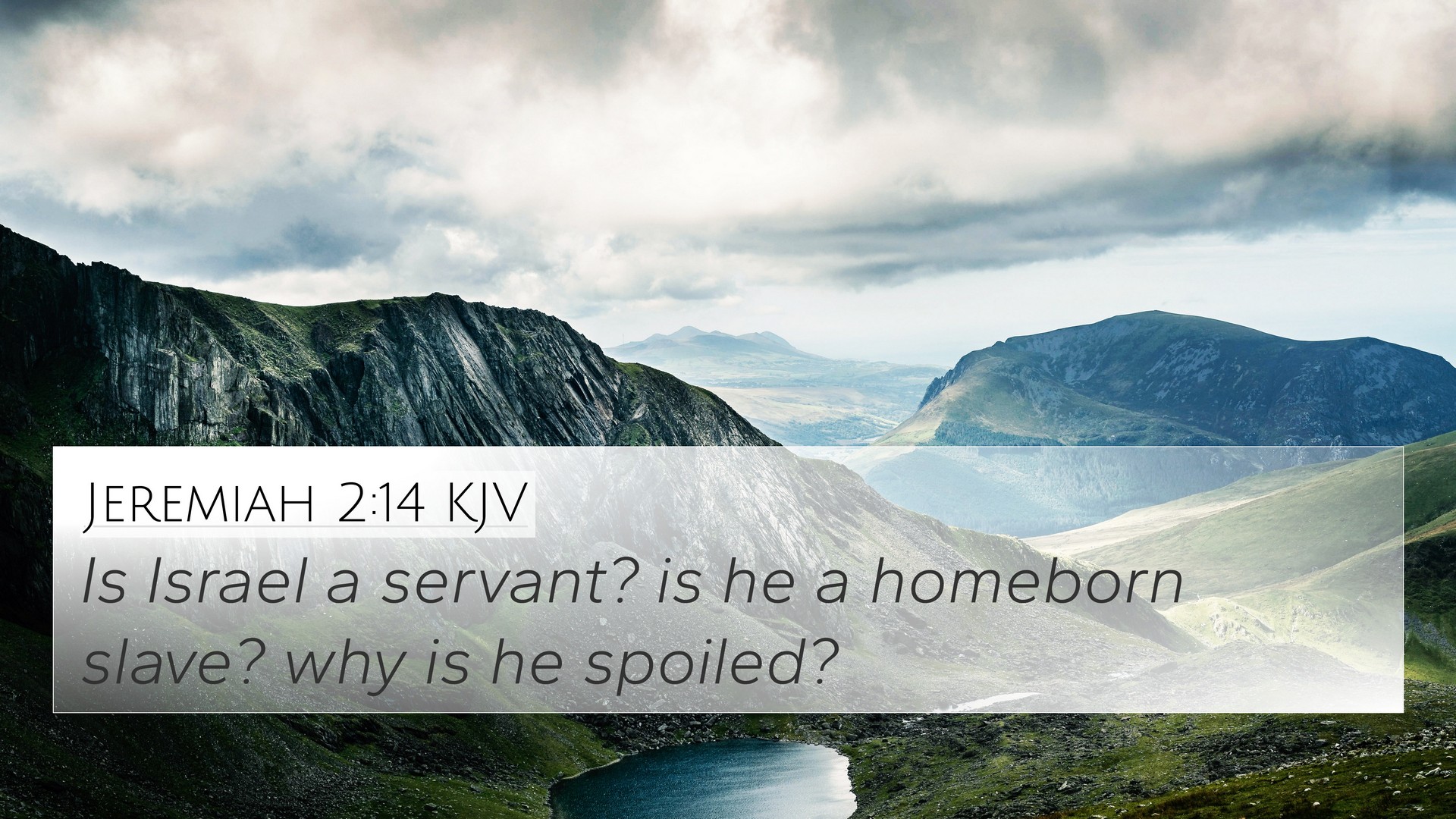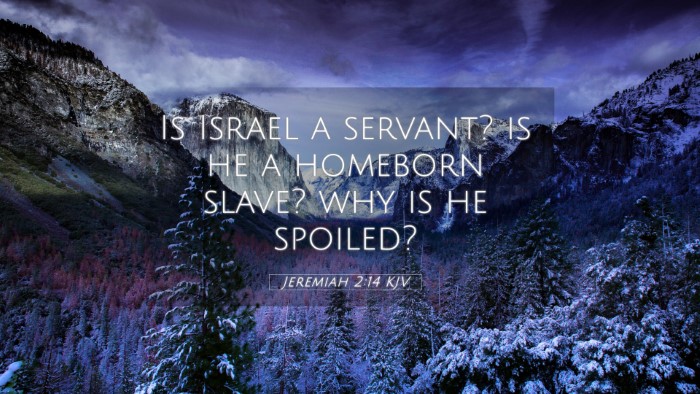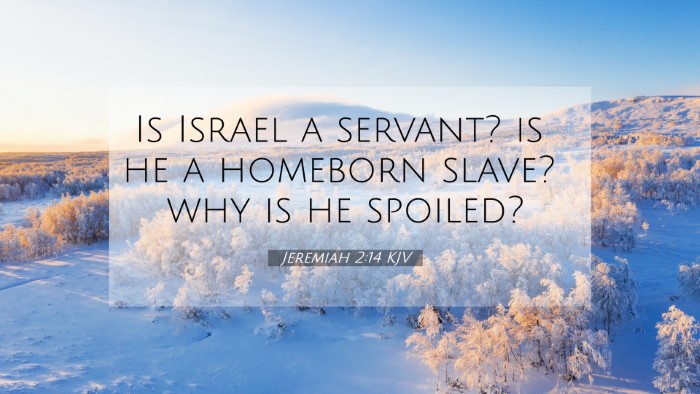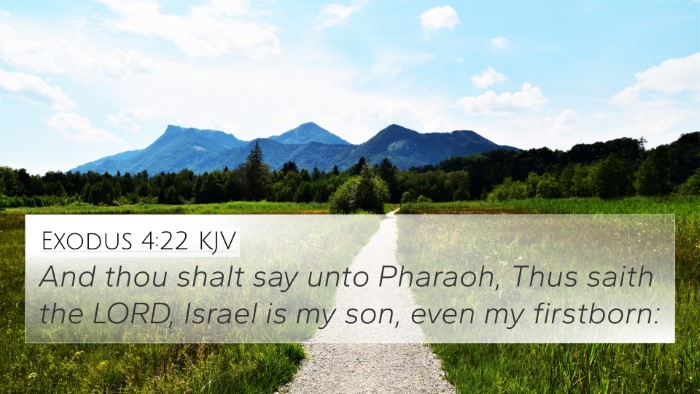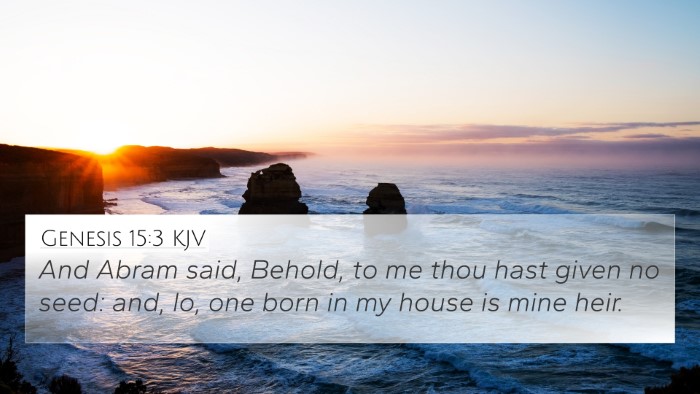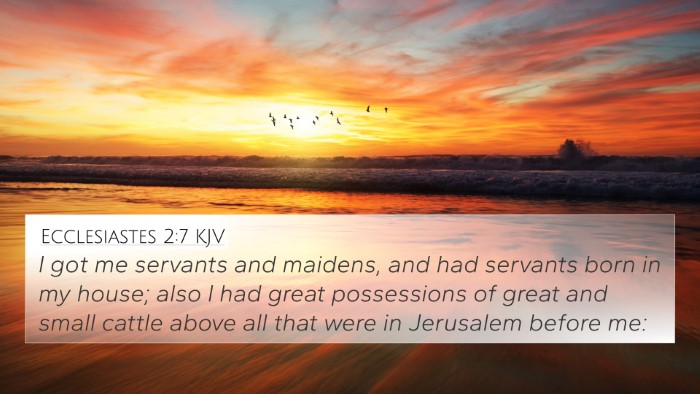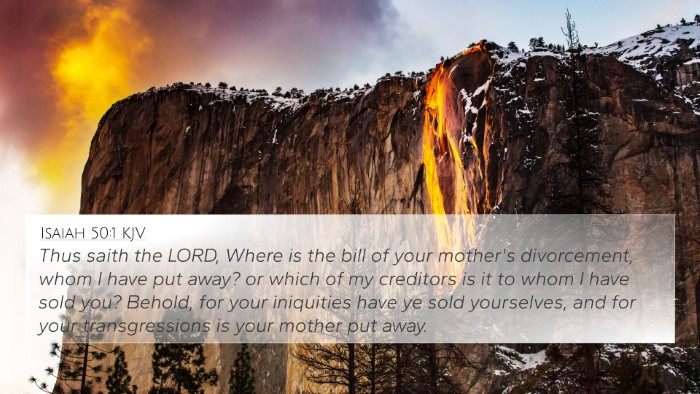Understanding Jeremiah 2:14
Jeremiah 2:14 reads: "Is Israel a servant? Is he a home-born slave? Why is he plundered?" This verse invites deep reflection on the status and predicament of Israel, prompting us to explore its meaning through various public domain commentaries.
Summary of Insights
This verse raises profound questions concerning the identity and position of Israel as a nation chosen by God. The prophet Jeremiah, addressing the Israelites, inquires about their servitude and the injustices they face. These questions lead to broader themes of spiritual neglect and the consequences that arise from turning away from God.
Commentary Insights
-
Matthew Henry's Commentary highlights that Israel, once God's chosen people, is depicted as a servant, diminished to a state of disgrace, contemplating their enslavement. Henry emphasizes that the verse illustrates the irony of Israel's situation, where they, meant to be free in God's covenant, are experiencing oppression due to their rebellion against Him.
-
Albert Barnes' Notes on the Bible elaborates on how Israel’s predicament is not due to a lack of power, but a result of forsaking their covenant with God. Barnes points out that the metaphor of slavery illustrates the loss of their dignity as a nation and the consequences of their disobedience.
-
Adam Clarke's Commentary emphasizes the questioning style of the verse, indicating a rhetorical plea for Israel to recognize their dire circumstances. Clarke suggests that understanding their identity as 'servants' leads them to repentance and a return to their rightful place under God's protection.
Thematic Bible Verse Connections
Jeremiah 2:14 connects with several Biblical themes and scriptures:
- Isaiah 54:17: This verse declares that no weapon formed against God’s people will prosper, contrasting Israel's plight in Jeremiah.
- Romans 8:37: Indicates that believers are more than conquerors, which serves as a reminder of Israel’s potential when aligned with God.
- Galatians 4:7: Talks about being no longer a servant but a son, highlighting the theme of belonging in God’s family.
- Exodus 3:19-20: Refers to God’s power in rescuing Israel from oppression, a stark reminder of His capability amidst their troubles.
- Psalm 106:46: Speaks of God showing mercy to His people in times of distress.
- Luke 4:18: Where Jesus proclaims freedom to the captives, linking to Israel’s current state under foreign rule in Jeremiah.
- John 8:36: "If the Son sets you free, you will be free indeed," reaffirming the importance of divine deliverance.
Inter-Biblical Dialogue
The dialogue between the Old Testament context of Jeremiah and New Testament fulfillment in Christ sheds light on the significance of freedom from bondage. The recurring theme of redemption across both testaments highlights God’s unchanging nature in seeking to restore His people.
Tools for Cross-Referencing
To fully grasp the connections in the Bible, utilizing tools for Bible cross-referencing, a Bible concordance, and a cross-reference Bible study guide can enhance your understanding of thematic connections. These resources help identify spiritual parallels and foster a deeper comprehension of scripture.
Conclusion
Jeremiah 2:14 serves as a poignant reminder of the consequences of turning away from God and the importance of recognizing one's identity in Him. It invites believers today to reflect on their spiritual state, urging them to seek restoration and freedom through faith. This verse opens the door to numerous connections within the Scriptures, demonstrating the richness of biblical study through comparative analysis.
